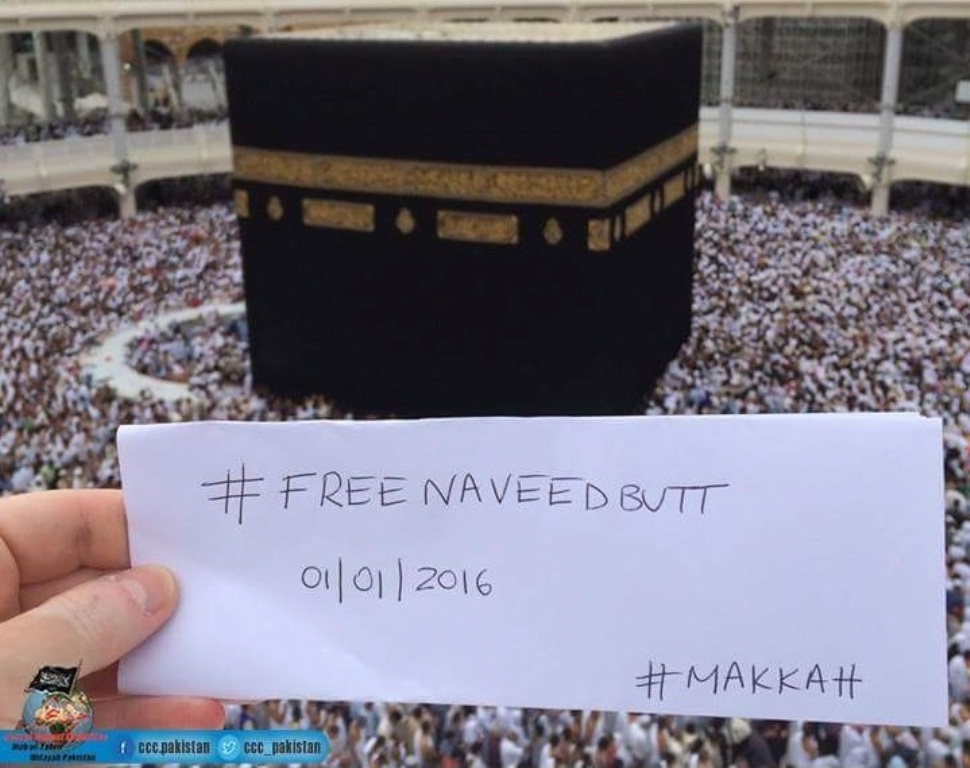It’s been eight years since Naveed Butt, the Pakistani spokesman for Islamic political party Hizb ut-Tahrir, went missing in Lahore.
It is believed that Butt was abducted by Pakistani ISI security forces on May 11, 2012 while collecting his children from school. He has not been heard from since.
Butt was an outspoken critic of the Pakistani government and in particular he spoke out against Pakistan’s role in the U.S.-led “War on Terror.” His criticism included the use of enforced disappearances that began under the leadership of General Pervez Musharraf.
Under Musharraf, Pakistan handed over hundreds of prisoners to the U.S. who were subsequently imprisoned without charge at Guantanamo Bay. Aafia Siddiqui also disappeared at that time.
Butt, an engineer, also vocally opposed NATO supply lines running through Pakistan to supply western troops in Afghanistan, and called for the Khilafa system to be introduced to the country.
Dr Nasreen Nawaz, of Hizb ut-Tahrir Britain, said on Twitter: “Naveed Butt was abducted and incarcerated 8 years ago by the Pakistan regime for no other crime than calling for the system of Allah, the Khilafah. In Pakistan, the one who speaks against oppression is treated like a criminal while the true criminals rule the state.”
Meanwhile, advocacy group CAGE has called on Pakistani Prime Minister Imran Khan to immediately release or bring to trial Naveed Butt.
Director of Outreach for CAGE, Moazzam Begg said: “Long before he became Prime Minister, I spoke to Imran Khan about enforced disappearances. He believed that they had to stop for the country to advance. It is disappointing – and embarrassing for Khan – that people like Naveed Butt remain ‘disappeared’ in Pakistani custody without access to basic legal redress.
“At a time when Pakistan prides itself for bringing peace to the restive tribal regions and participating in the unprecedented peace negotiations with the Taliban, it is time that all the disappeared, including Naveed Butt, were freed and reunited with their loved ones.”
Human rights group Amnesty International says that despite pledges by successive governments to criminalise the practice, there has been slow movement on legislation while people continue to be forcibly disappeared with impunity.
The Pakistan Commission of Inquiry on Enforced Disappearances has 2,178 cases unresolved as of now, while the UN Working Group on Enforced or Involuntary Disappearance has more than 700 cases pending from Pakistan.
Victims groups say the number of cases of enforced disappearance is in reality much higher.
Groups and individuals targeted in enforced disappearances in Pakistan include people from Sindhi, Baloch, Pashtun ethnicities, the Shia community, political activists, human rights defenders, members and supporters of religious and nationalist groups, suspected members of armed groups, and proscribed religious and political organisations.
In some cases, people are openly taken into custody by the police or intelligence agencies, and families trying to find out where they are held are denied information by the authorities.
Some victims are eventually released or their whereabouts are disclosed to their families but they continue to be held in arbitrary detention including in internment camps. Those forcibly disappeared are also at risk of torture and death during captivity.
Imran Khan has committed to criminalising enforced disappearances. Shireen Mazari, the Minister of Human Rights has also stated that the government wants to sign the International Convention for the Protection of All Persons from Enforced Disappearance.

